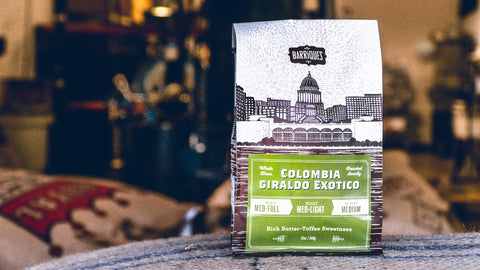One of the questions we get fairly often is what is the best way to help extend the life of a bottle of wine that has been opened. In reality there is no perfect system. Oxygen is the enemy of wine and once the cork or cap has been removed, the wine begins to oxidize and eventually will taste awful. In our experience, the tools listed below will double the time you get versus simply re-corking/capping the bottle and putting it on the counter or in the fridge. We will caveat this all by saying, at the end of the day, it comes down to personal preference as to how long you can have an open bottle taste good, regardless of what you do to extend its life. Some more finely tuned palates out there might find a wine sitting open for only a day to be undrinkable. Assuming you are not one of those people, here are a few of our favorite ways to keep a wine enjoyable after it has been open.
1. Inert Gas: Private Preserve is our favorite tool to extend the life of partially consumed bottles of wine. True story. 15 or so years ago when the first case of Private Preserve was sent to us, we immediately called our sales person to let him know they sent us empty bottles! We quickly felt like complete idiots but later realized we might have been in good company when they began printing “Full Can Feels Empty” directly onto the bottle. Indeed it does! To use, simply pop the cap off and squirt two or three short bursts of this inert gas(nitrogen, carbon dioxide, and argon) into the bottle of wine and quickly recork. The gas displaces the oxygen, shielding it from the harmful effects of oxidation. The bottle comes with a slim tube that attaches to the nozzle to allow it to place the gas deeper into the bottle but we generally don’t use it.
LONGEVITY: Seven days is typically the maximum time we find a wine stays fresh enough to not warrant pouring the rest down the drain and just opening opening a new bottle. Commercial inert gas systems might get double that or more.
PROS: Super, super easy to use. No parts to lose. Superior results vs pumping in our unscientific tests.
CONS: More expensive over time. The can says you get 120 full uses which is alot. Possibility for humiliation if you send it back telling them that your bottle is empty. :)
2. Vacuum Pumps. The Vacu Vin brand is the one you might be most familiar with. This solution is cheap, reasonably effective, and easy to use. The standard kit comes with the pump and a wine stopper. Simply place the wine stopper into the top of the bottle and then place the pump on top of the stopper. With one hand holding the pump on the stopper, start pumping w/ the other hand. This will pull air out of the bottle, thereby reducing the gases that can help oxidize the wine and make it taste bad over time. Modern models actually click while pumping to indicate you have removed the maximum amount of air the system can extract.
LONGEVITY: Three or four days is typically the maximum life we get from a wine w/ the vacuum pump.
PROS: Easy to use and very durable. Relatively in-expensive. Additional stopper kits available for purchase.
CONS: Possibility of losing the stoppers. Our unscientific tests lead us to think it is not quite as effective as using inert gas. While easy to use, you do need to expend several calories while pumping.
3. So we are going to cheat on this one a bit. How about inviting a friend over to help you enjoy the bottle so that you don’t have any left over to begin with! Lol. But seriously, wine is always meant to be enjoyed. When people come in and tell us about their favorite bottle of wine, a big part of why they thought it was so awesome was the company in which they drank it. A good friend will make any bottle taste better.
LONGEVITY: NA, nothing left to preserve
PROS: No need for storage solutions. Wine tastes better with friends.
CONS: May delay getting out of bed the next morning. ;)
Let us know in the comments below what your favorite way is to preserve an open bottle of wine or if you have any questions?









